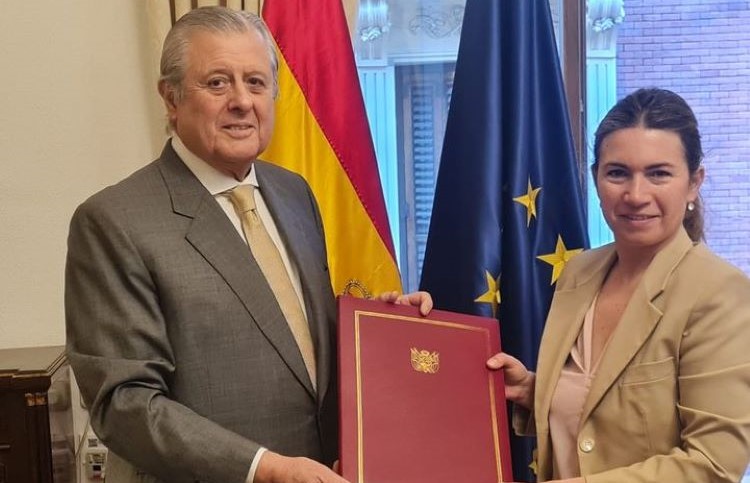The Diplomat
The PP will submit a motion for a vote next week in the plenary session of the Congress of Deputies, coinciding with the NATO summit to be held in Madrid, to highlight the division that foreign and defence policy is causing between the two partners in the coalition Executive.
The motion is a consequence of the interpellation that the PP Foreign Affairs spokeswoman, Valentina Martínez, addressed last Wednesday to the Minister of Foreign Affairs, José Manuel Albares. During the debate between the two, the ‘popular’ stressed to the minister that “improvisation and amateurism” leave Spain in its weakest foreign position, and the latter reproached him for the lack of “sense of State” with which, in his opinion, the first opposition party acts in foreign policy.
The motion, to which Europa Press has had access, consists of a total of 15 points which the PP will probably ask to be voted on separately next Thursday, coinciding with the closing of the NATO Summit.
Thus, the ‘populares’ want Congress to support the results of the NATO summit, support the organisation’s missions in which Spanish troops participate, the reinforcement of our presence in all collective security schemes and the development of common defence within the framework of the EU, in complementarity with the Alliance.
In the same text, they advocate that the new strategic concept should include the guarantee of the entire national territory, with particular attention to non-peninsular territories, i.e., the islands and Ceuta and Melilla.
They also include a point to guarantee “adequate funding for national defence” so that it reaches 2% of GDP by 2030, as well as accelerating the modernisation of the armed forces’ capabilities and improving the conditions of military personnel.
Another of their demands, which will surely be rejected by Unidas Podemos, is to recognise “the role of the United States in the defence of Europe’s security and freedom”. They also demand support for Swedish and Finnish membership of NATO and condemn Turkey’s “blocking” of this possibility.
The PP also proposes that the House urge the government to continue increasing military support for Ukraine in the face of Russian aggression, to recognise the role of the Ukrainian president, Volodimir Zelenski, in defending the independence and integrity of his country and to support the European Commission’s decision to consider Ukraine as a candidate country for EU membership.
However, the parliamentary group led by Cuca Gamarra is also using its motion to include demands relating to the Sahara, Latin America and the working conditions of foreign workers.
Thus, the PP hopes that Congress will urge the Government to restore political, economic and commercial relations with Algeria, “recovering the position of active neutrality with respect to the future of the Sahara”, that is, that President Sánchez rectifies his stance on the former colony. If this point were to go ahead, it would be the fourth time that the lower house has censured the president’s endorsement of the autonomist path proposed by Morocco, another of the issues that separates the PSOE and Unidas Podemos.
Finally, in view of the “threats to freedom” that, according to the PP, are being registered in Latin America, the motion calls on the government to promote a “policy based on the promotion of democracy, the separation of powers and the guarantee of all individual and collective freedoms and rights”.







